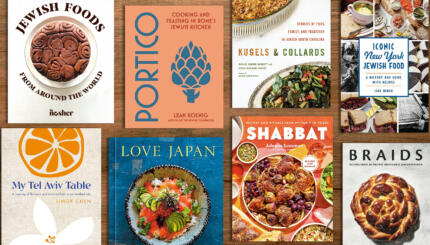So much human tension and conflict are bound up with what I often call the hubris of exclusivity. Too many of us are ensconced in our own truth, unable to tolerate any other view of reality, or morality, or justice. To give a real hearing to the other side feels traitorous as if we are turning our backs on the most basic principles of truth and decency. This polarization is tearing American society apart at the seam, and on my side of the ocean in Israel, it is contributing to the perpetuation of the seemingly intractable Israeli-Palestinian conflict.
To me, it appears that in the writings of Rabbi Abraham Isaac haKohen Kook, we may be able to find a way of thinking that can help us to maneuver out of this dead end.
Rabbi Kook was a religious mystic. The foundation of everything for him is the belief that the “Holy One Blessed be He, is the master of all of the different truths; He contains them all and combines them all.” (Olat Ra’aya I, p. 330) God is the kaleidoscope of the myriad partial and contradictory truths that make up reality. He holds the real truth not because there is one real truth, but rather because He collects and balances all the fragmentary ones. God is whole but not homogeneous.
The truths that are of God are in the world as well. One must “Know that there is a spark of light in everything and that the divine spark of light shines in all the various belief systems, as so many different pedagogics for the culture of humanity.” (Orot p. 130; The Classics of Western Spirituality – Abraham Isaac Kook, Ben Zion Bokser, pp. 272-5)
One of the meta-commandments of the Torah is to emulate God. One of the ways to do so is:
Through the liberation of [the soul’s] imagination and of the expanse of its thought, through knowledge of the world and of life, through the wealth of the experience of all of existence. For this, it is necessary to study all of the wisdoms in the world, all ways of life, all different cultures, along with the ethical systems and religions of all nations and languages, so that, with greatness of soul, one will know how to purify them all. (Arpelei Tohar, p. 33)
We must study and listen, collect, and absorb more and more approaches and understandings, as strange and offensive as they sometimes appear. Not everything that we learn must we accept as true; our foundation must be Torah, but a Torah that is always expanding. (ibid) We must struggle with ourselves to always endeavor not to refute but to find some spark in all that we encounter that can enrich our ever-expanding purview of truth.
Rabbi Kook tells us that,
It turns out that hostility and disparagement are to be directed not at what is present in any movement or culture, but at what is absent in it. In other words, they are to be directed at the fact that these have not yet completed the process of clarification and unfolding of content to a point of being linked with the higher sweep and the penetrating perception of the sublime idea, of the absolute reality of God, in its majestic significance. (Orot ha Kodesh III, pp. 326-7; The Classics of Western Spirituality – Abraham Isaac Kook, Ben Zion Bokser, pages 236 -7)
What that means, is that the falsehood that fills the world may legitimately arouse our ire, but at the same time, we must understand that falsehood is nothing more than partial truth masquerading as complete truth. It is not that the ideas are wrong, but that the ideas are unbalanced by competing ideas. One frequency of light on the spectrum that denies the existence of other frequencies – that is the problem. What we must do is not to denigrate that frequency but rather to connect it to the other frequencies and to allow ourselves to be illuminated by the rainbow of light that they create together.
Just as in our search for wider perspectives we ought to oppose fragmentary truths that know only themselves, at the very same time we must look within ourselves and guard against the “The cancerous type of zealousness that is a result of a haughty presumptuousness that causes oneself to regard fragmentary intellectual spiritual expressions as though they stood at the heights of exalted comprehensiveness.” (Orot p. 130; Classics … pp. 272-5) We do not have the full truth and never will. All we can do is to aspire towards it.
Our search for God and for truth is the search for the higher comprehensiveness that “Does not exclude anything from its domain; it finds a place for everything” (ibid)
So we must go forth and listen and then listen again, not because the other might be right and we might be wrong, but rather because the other might be right just as we are right. We must know that when only we are right, we are certainly wrong. We must strive to hold this truth and that truth instead of this truth or that truth. We must be zealous for the whole and not for any one part of it. That according to Rabbi Kook is the meaning of being zealous for God.
At a time when religious zealotry seems hell-bent on destroying the world, Rabbi Kook offers us a version of religious zealotry that may yet save the world.



